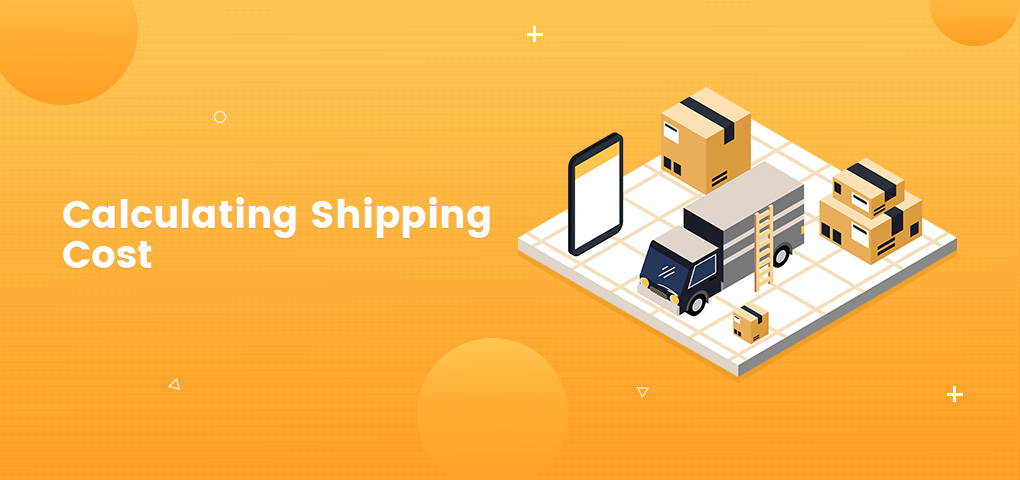Are you an eCommerce merchant and feeling so drowsy and exhausted to calculate the shipping costs? But it doesn't have to be like that. If you want to know how much it's going to cost to ship a shipment overseas, or if you need to understand how to estimate shipping costs to deliver goods to thousands of consumers around the world, then we've got you covered. It's 2021, and that means there are several resources available for you to calculate the delivery costs in minutes.
In this comprehensive guide, we will provide the specific details you need to know, like how much it costs to ship a package or how to calculate the shipping cost, and include some helpful resources that can help you calculate your shipping costs in a few clicks.
How Much Does It Cost To Ship A Package
The cost depends on the source, destination, operation, weight of the package, and other factors. Time and cost estimates allow you to compare delivery times and reported prices to send UPS shipments worldwide.
How To Calculate Shipping Costs
Before redirecting to know how to calculate shipping costs, let's first know what factors affect the shipping cost. Once these options are calculated, a carrier will put a price on your shipment.
1. Package dimensions
All major carriers use a pricing strategy called dimensional weight to determine shipping costs. Dimensional weight shall take into account the size of the shipment to calculate the shipping cost. DIM weight is determined by multiplying the length, width, and height of the product or box size and then dividing it by the standard DIM divider. Shipping carriers such as USPS, FedEx, and UPS calculate shipping costs on the basis of what is greater: the real weight of the shipment or its DIM weight. Whichever is higher becomes the payable weight that your company would be charged.
2. Package weight
Package weight is how heavy the object is—no DIM divisor or measurement is required. As mentioned above, if this amount is greater than the DIM weight, it will be used to calculate shipping costs. The heavier and bigger the package, the more costly the ship would be.
3. Shipping destination
Carriers are using shipping zones to determine shipping rates. Shipping zones measure the distance between the point of origin of the package and its destination. Shipping zones are determined on the basis of where the package is shipped. This means that two different origin shipment points to the same destination may be shipped to entirely different zones.
As a rule, the higher the shipping zone, the more costly the package will be shipped.
4. Value of contents shipped
If you ship very high-value goods, you will want to get your shipments covered. Shipping insurance provides compensation to shippers whose packages are lost, stolen, and destroyed in transit. Though useful, this service will add significantly to your shipping costs.
5. Unexpected problems
It doesn't matter how impermeable your shipping tactic is; unexpected issues may arise. These may range from delays in transit to lost or damaged items to split shipments. While you can't predict precisely what will happen, make sure you leave some room for maneuver in your shipping budget is even an emergency.
Understanding shipping prices by carrier
Making it much more difficult for businesses that are manually trying to run their transport networks needs different approaches for each carrier to determine shipping rates. So we have set up some guides on how much does shipping cost for some common carriers:
- USPS: You can measure USPS shipping costs by navigating to the USPS Shipping Calculator page. Automatic estimates are available via the USPS API. Several variables can impact the shipping costs in this regard, so there is a need for multiple information items — including your ZIP Codes for source and destination, your date, time, and the type, size, and shape of the package you're going to use.
It is essential to note that if you have all this information ready to determine your shipping rates, your shipment can qualify for one of the USPS shipping discount programs.
- FedEx: FedEx makes use of dimensional weight to measure shipping rates. They offer a range of delivery rates, from land to overnight, all on the same day. One of the advantages of shipping via FedEx is the FedEx Small Business initiative targeted at growing businesses in need of shipping solutions. In addition to the rewards program and the Packaging Support Center, FedEx Small Business members enjoy discounts of up to 16% on selected shipments.
- UPS: UPS also measures shipping costs based on the dimensional weight. Various UPS delivery solutions use various pricing models, ranging from UPS Land to UPS 3-Day Pick or 2nd Day Air. Depending on the shipping option, businesses can access shipping discounts through the UPS Link program, including 20 percent off-air and foreign shipments and 10 percent off-shore.
Hopefully, the above information on how much does it cost to ship a package will enrich your knowledge. Here you got to know that every company has different advent techniques to determine the average shipping costs. But if you are hunting for a free dropshipping service, don't go further, as SaleYee.com is there for you.
SaleYee.com: The Best Free drop shipping Service!!
Now that you are well known for international shipping costs, the next important thing to recognize is the free drop-shipping network. There are several drop-shipping sites out there that provide top-notch services. The large number, however, makes it overwhelming to select from within the list. SaleYee is a Dropshipping Platform that provides you with a free delivery service and the best in all for customer support.
Now avail the best free dropshipping service with the SaleYee platform!!
Conclusion
For all who think that calculating shipping costs is complex, then you are wrong here. This comprehensive guide has detailed information on how much it costs to ship and most carriers' factors under consideration. So it's time to save money on shipping costs by investing in the best dropshipping platform!





